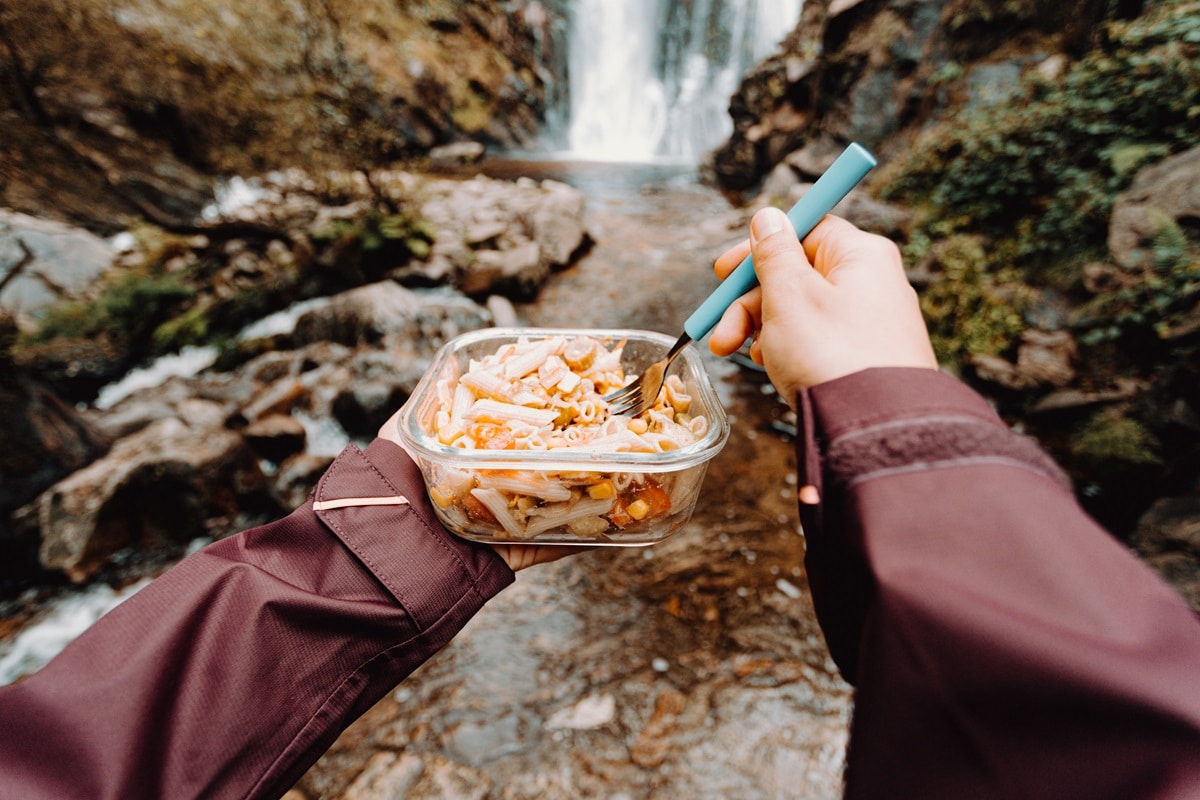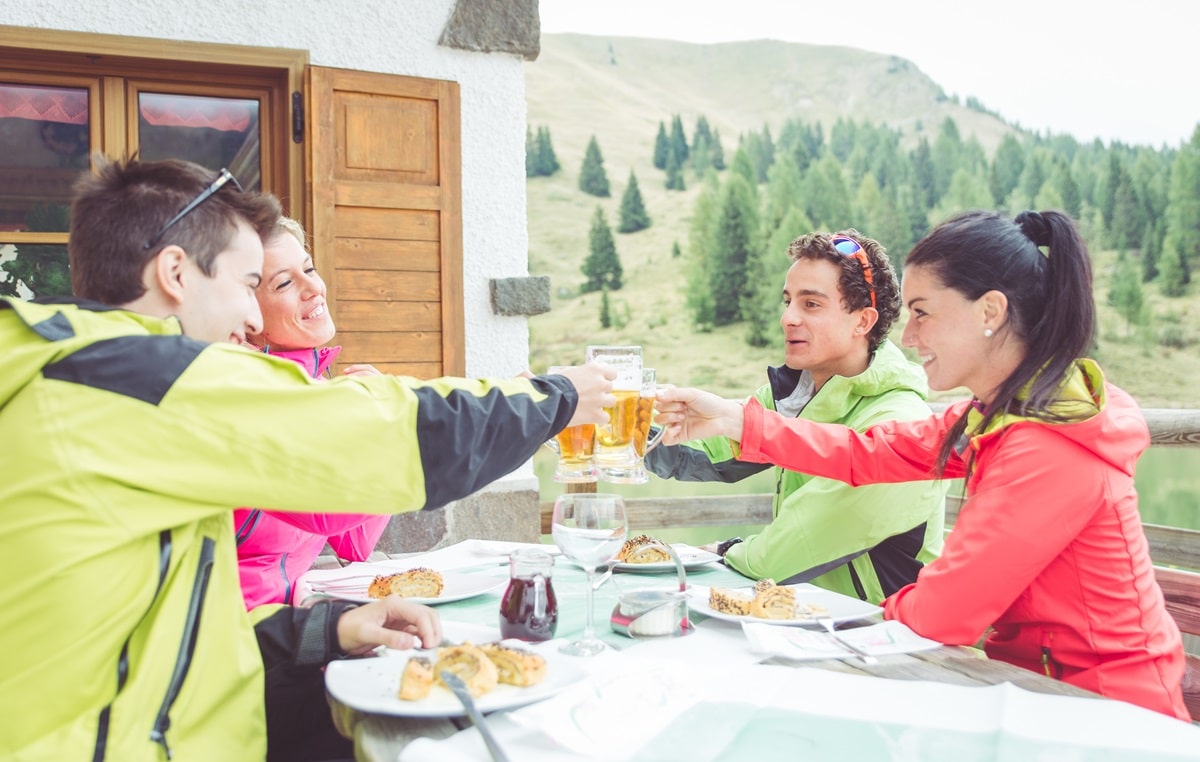What Are the Food Options Along the Pyrenees Traverse Trail?
When embarking on the Pyrenees Traverse, understanding the food options available along the trail is crucial for a successful trek. The Pyrenees, straddling the border between Spain and France, offer a diverse culinary experience that reflects the rich cultural heritage of the region. From hearty stews and artisan cheeses to local wines and unique dishes, the food along the Pyrenees Traverse is as varied as the landscapes you will encounter.
Types of Food Available
Along the Pyrenees Traverse, you can expect a range of food options that cater to different tastes and dietary needs. Traditional dishes such as stews, artisan cheeses, and local wines are commonly available. You will also find hearty country cuisine and sophisticated Catalan dishes, with unique menu items like rabbit, snails, and pony. Local specialties such as Jess violet marmalade and famous cannelloni add a unique flavour to the culinary experience.
Dining Options
Food can be found at various points along the trail, including mountain refuges, hostels, hotels, and local restaurants. Mountain refuges often offer communal meals made from local produce, providing a chance to enjoy gourmet mountain fare. Hostels and hotels may also serve meals, and it is advisable to make reservations in advance, especially during the summer months.
Availability of Dehydrated and Packaged Food
For those who prefer convenience, dehydrated or packaged food is available for purchase at some hostels and refuges. There are also local initiatives for producing dehydrated meals, ensuring that hikers have access to lightweight and easy-to-prepare food options.
Meal Planning and Resupply Points
Planning your meals is essential for a successful trek. Key resupply points along the trail allow hikers to purchase food, but it is important to be aware of longer stretches where resupply options are limited. In these areas, carrying additional food is necessary.
Special Dietary Needs
Hikers with special dietary needs, such as vegetarian, vegan, or gluten-free diets, will find options available along the trail. Specific accommodations, like Studio Vert Vegan B&B, cater to these needs, ensuring that all hikers can enjoy their meals.
Local Culinary Specialties
The Pyrenees are known for their local culinary specialties. Hikers should try dishes like Jess violet marmalade, famous cannelloni, and Ramns gin palace. These local delicacies provide a cultural dimension to the food experience along the trail.
Accommodation and Meal Packages
Many accommodations along the Pyrenees Traverse offer meal packages, including breakfast, lunch, and dinner. Family-run hotels and mountain refuges often provide these packages, and advance booking is recommended to ensure availability.
Cooking Facilities and Self-Catering
For hikers who prefer to prepare their own meals, some accommodations offer cooking facilities. It is advisable to bring lightweight cooking gear and plan meals accordingly.
Local Markets and Shops
Local markets and shops along the trail provide opportunities to purchase fresh produce, snacks, and other food supplies. Notable local products include cheese, butter, ham, organic bread, and fresh trout, adding to the culinary experience.
Dining Recommendations in Nearby Towns
Before or after the trek, hikers can explore dining options in nearby towns and cities. Restaurants in Barcelona and Perpignan offer a variety of cuisines, including vegan and vegetarian-friendly options, ensuring a satisfying culinary experience.
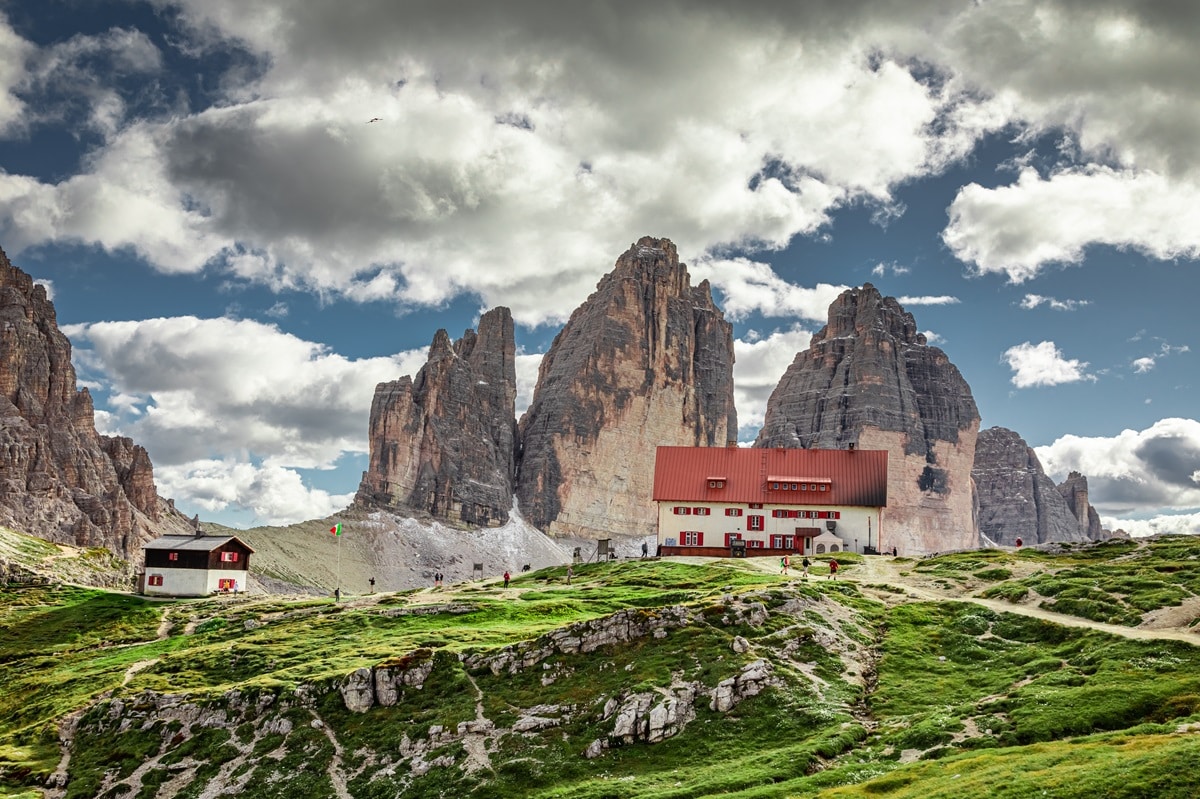
Mountain Refuges and Hostels: Dining Options and Reservations
Types of Meals Offered at Mountain Refuges
Mountain refuges along the Pyrenees Traverse trail typically offer hearty, communal meals that reflect the local cuisine. You can expect dishes such as stews, artisan cheeses, and local wines. These meals are often prepared using fresh, local produce, providing a taste of the region’s culinary traditions. Some refuges may also offer unique menu items like rabbit, snails, and pony.
Reservations for Meals
It is advisable to make reservations for meals at mountain refuges, especially during the peak hiking season from July to September. Booking a day in advance is usually sufficient, but during busy periods, it might be wise to plan further ahead. This ensures that you have a spot at the communal table and can enjoy a meal after a long day of trekking.
Refuges Known for Exceptional Food
Certain refuges along the trail are renowned for their exceptional food. For instance, Refuge dAraing is known for its local cheese, butter, ham, organic bread, and fresh trout. These refuges often source their ingredients from nearby farms and markets, ensuring high-quality and flavorful meals.
Communal Dining Experiences
Dining at mountain refuges is a communal experience, where hikers gather to share a meal and stories from the trail. These meals are typically served at set times, and everyone eats together, fostering a sense of camaraderie among trekkers. The atmosphere is relaxed and friendly, making it a great opportunity to meet fellow hikers and exchange tips and experiences.
Local Culinary Specialties: Must-Try Dishes and Delicacies
Traditional Dishes to Try
While hiking the Pyrenees, you’ll encounter a variety of traditional dishes that reflect the rich cultural tapestry of the region. Stews are a staple, often made with local meats and vegetables, providing a hearty meal after a long day on the trail. Artisan cheeses, crafted from the milk of local herds, offer a taste of the area’s dairy traditions. Local wines, produced in the surrounding vineyards, complement these meals perfectly.
Unique Menu Items
Certain menu items stand out for their uniqueness. You might come across dishes featuring rabbit, snails, or even pony, which are considered delicacies in some parts of the Pyrenees. These dishes provide a unique culinary experience that you won’t find elsewhere. Additionally, Jess violet marmalade and the famous cannelloni are local specialties that are worth trying.
Influence of Local Ingredients
The cuisine along the Pyrenees trail is heavily influenced by local ingredients. Fresh produce from nearby farms, wild herbs, and locally sourced meats are commonly used in the preparation of meals. This emphasis on local ingredients ensures that the food is not only fresh but also deeply connected to the region’s agricultural practices.
Artisan Cheeses, Local Wines, and Regional Specialties
Artisan cheeses are a highlight of the Pyrenees culinary experience. Made from the milk of sheep, goats, and cows, these cheeses vary in flavour and texture, offering something for every palate. Local wines, whether red, white, or ros, are produced in the vineyards that dot the landscape. Other regional specialties include hearty country cuisine and sophisticated Catalan dishes, which showcase the diverse culinary traditions of the area.
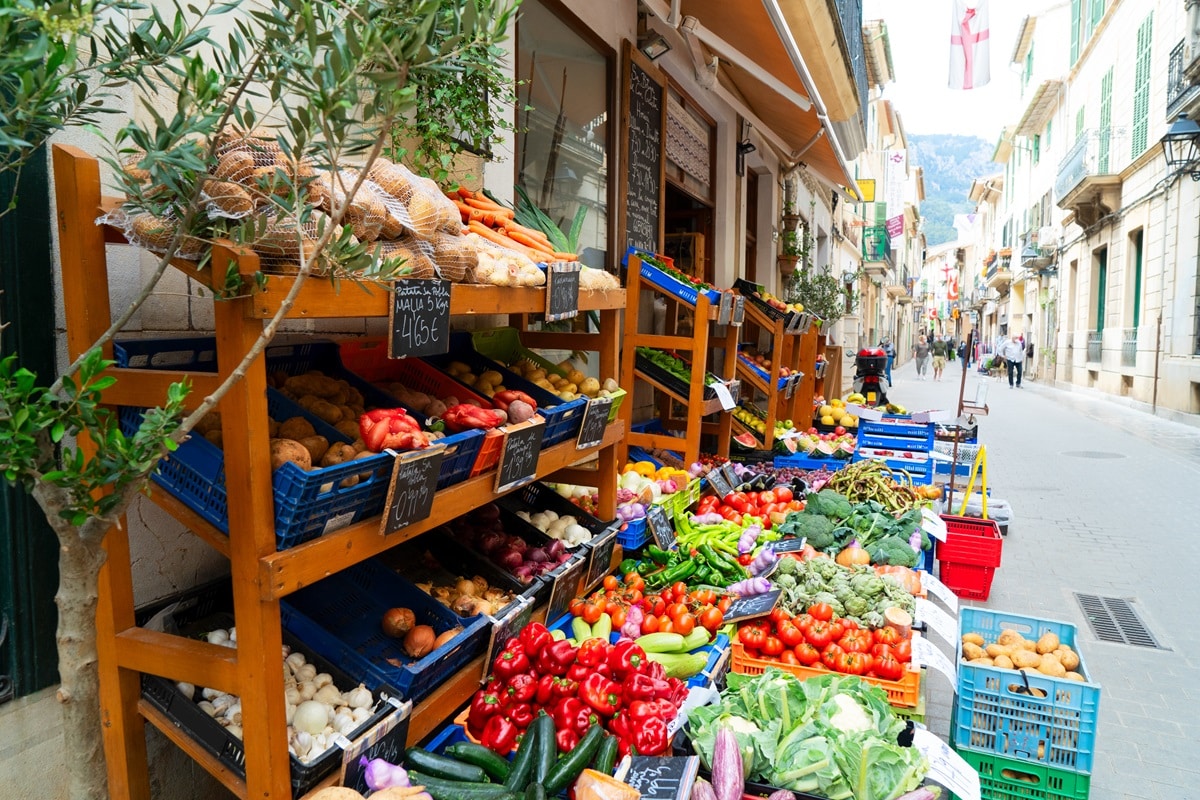
Vegan and Vegetarian Options: Availability and Recommendations
Availability of Vegan and Vegetarian Meals at Refuges and Hostels
For those following a vegan or vegetarian diet, the Pyrenees Traverse trail offers several options. Many mountain refuges and hostels are aware of dietary preferences and can provide plant-based meals. However, it is advisable to inform the accommodation in advance to ensure they can cater to your needs. This is particularly important during peak hiking seasons when supplies may be limited.
Vegan-Friendly Accommodations
Certain accommodations along the trail are known for their vegan-friendly options. Studio Vert Vegan B&B in the Pyrnes-Orientales is a notable example, offering cruelty-free products and shared meals that cater to vegan diets. This B&B also provides activities such as yoga and birdwatching, enhancing the overall experience for eco-conscious travellers.
Ensuring Access to Plant-Based Meals
To ensure you have access to plant-based meals along the trail, consider carrying some essential supplies with you. Lightweight, high-energy snacks such as nuts, dried fruits, and energy bars can be a lifesaver. Additionally, some hostels and refuges sell dehydrated food packs that include vegan options. Planning your meals and resupply points in advance will help you maintain your dietary preferences throughout the trek.
Vegan and Vegetarian Restaurants in Nearby Villages
In the villages along the Pyrenees Traverse, you can find several restaurants that cater to vegan and vegetarian diets. For instance, Fridas vegan restaurant in Perpignan offers a variety of plant-based dishes. Similarly, Coffee Mood caf in Perpignan provides vegan-friendly options. These establishments ensure that you can enjoy a diverse culinary experience even when you step off the trail.
Fresh and Local Produce: Markets and Artisan Foods
Where to Purchase Fresh, Local Produce Along the Trail
As you traverse the Pyrenees, you’ll find several opportunities to purchase fresh, local produce. Many villages along the trail host markets where you can buy fruits, vegetables, and other essentials. These markets are often held weekly, providing a vibrant array of seasonal produce that can add a fresh touch to your meals.
Opportunities to Buy Artisan Foods
The Pyrenees is renowned for its artisan foods, and you’ll have plenty of chances to sample and purchase these delicacies. Local cheeses, made from the milk of sheep, goats, and cows, are a highlight. You can also find freshly baked bread, cured meats, and other regional specialties. These artisan foods not only offer a taste of the local culture but also provide high-quality nourishment for your journey.
Contribution of Local Markets to the Food Experience
Local markets play a significant role in enhancing the food experience along the Pyrenees Traverse. They offer a glimpse into the daily life of the region, where you can interact with local vendors and learn about the origins of the produce. The markets are a sensory delight, filled with the colours, smells, and sounds of the region, making your food shopping an enjoyable part of the trek.
Benefits of Supporting Local Food Producers
Supporting local food producers has several benefits. It ensures that you are consuming fresh, high-quality products that are often more nutritious and flavorful than mass-produced alternatives. Additionally, purchasing from local markets and artisans helps sustain the local economy and supports traditional farming and food production methods. This connection to the local community enriches your trekking experience, providing a deeper understanding of the region’s culture and way of life.
Dehydrated and Packaged Meals: Convenience and Availability
Can You Buy Dehydrated or Packaged Meals for the Hike?
Yes, dehydrated and packaged meals are available for purchase along the Pyrenees Traverse trail. These meals are particularly convenient for hikers who need lightweight, easy-to-prepare food options. They are designed to provide the necessary nutrients and energy required for long days of trekking.
Where Can You Find These Meal Options Along the Trail?
You can find dehydrated and packaged meals at various hostels and refuges along the trail. Many of these accommodations stock food packs specifically for hikers. Additionally, some local shops in the villages along the route may offer these meal options. It’s a good idea to check in advance or ask at your accommodation about the availability of these meals.
Are There Any Local Producers of Dehydrated Meals?
There are local initiatives for producing dehydrated meals, which aim to provide hikers with high-quality, locally sourced food options. These meals often include regional ingredients and are crafted to meet the dietary needs of trekkers. By purchasing these locally produced meals, you can enjoy a taste of the Pyrenees while supporting local businesses.
How Do These Meals Compare to Fresh Food Options?
Dehydrated and packaged meals offer convenience and ease of preparation, making them a practical choice for long hikes. However, they may not match the flavour and freshness of meals prepared with local produce. Fresh food options, such as those available at mountain refuges and local markets, provide a richer culinary experience. Balancing dehydrated meals with fresh food when possible can enhance your overall dining experience on the trail.
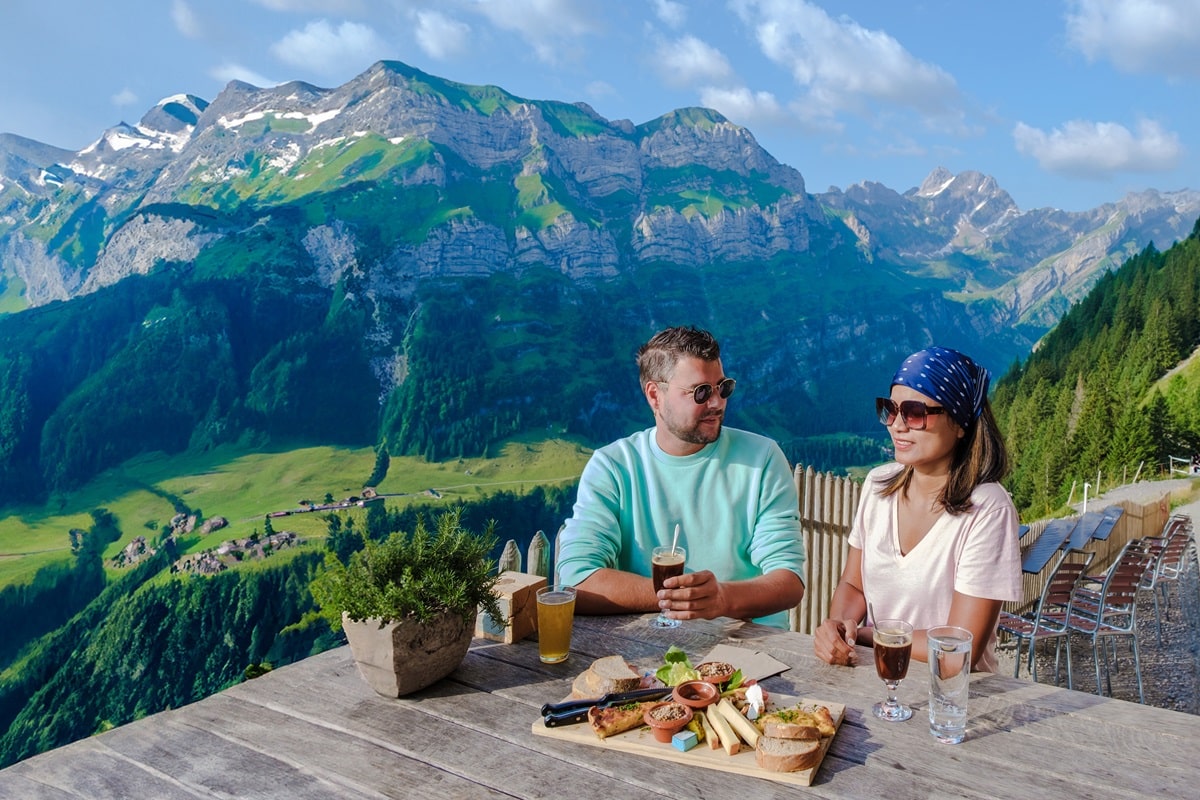
Dining in Villages: Recommended Restaurants and Cafes
Best Places to Eat in the Villages Along the Trail
As you journey along the Pyrenees Traverse, you’ll find a variety of dining options in the villages that dot the trail. These eateries offer a chance to rest and refuel while enjoying the local cuisine. In Catalonia, establishments like Cal Sastre, Hotel Grvol, and Hotel Calitxo are well-regarded for their welcoming atmosphere and delicious meals. Each offers a unique dining experience, reflecting the culinary traditions of the region.
Notable Restaurants and Dining Experiences
Certain restaurants along the trail stand out for their exceptional food and memorable dining experiences. For instance, Refuge dAraing in the French Pyrenees is known for its local cheese, butter, ham, organic bread, and fresh trout. These ingredients are often sourced from nearby farms, ensuring a fresh and authentic taste. Additionally, Studio Vert Vegan B&B in the Pyrnes-Orientales offers vegan-friendly meals, making it a great option for those with dietary preferences.
Contribution of Village Eateries to the Overall Food Experience
Village eateries play a significant role in enhancing the overall food experience on the Pyrenees Traverse. They provide a taste of the local culture and cuisine, allowing you to sample traditional dishes and regional specialties. These dining spots often use fresh, local ingredients, adding to the authenticity of the meals. The communal dining atmosphere in many of these places fosters a sense of camaraderie among hikers, making meal times a social and enjoyable part of the trek.
Traditional and Modern Cuisine in Villages
In the villages along the Pyrenees Traverse, you can find both traditional and modern cuisine. Traditional dishes often include hearty stews, artisan cheeses, and local wines, reflecting the rich culinary heritage of the region. At the same time, modern eateries offer innovative takes on classic recipes, providing a diverse dining experience. Whether you prefer the comfort of traditional fare or the excitement of contemporary cuisine, the villages along the trail have something to satisfy every palate.
Final Thoughts: Planning Your Culinary Adventure on the Pyrenees Traverse
How Should You Plan Your Meals and Food Supplies for the Trek?
Planning your meals and food supplies for the Pyrenees Traverse requires a bit of foresight. Start by identifying key resupply points along the trail where you can purchase fresh produce, artisan foods, and dehydrated meals. Make a list of the mountain refuges and hostels that offer communal meals, and consider booking these in advance, especially during peak season. Carry lightweight, high-energy snacks such as nuts, dried fruits, and energy bars to keep you fueled between meals.
Key Takeaways for Ensuring a Satisfying Food Experience
To ensure a satisfying food experience, balance convenience with culinary exploration. Enjoy the hearty, communal meals at mountain refuges, and take the opportunity to try local specialties like artisan cheeses and traditional stews. Plan your resupply points carefully, and don’t forget to sample the fresh, local produce available at village markets. This approach will provide a rich and varied culinary experience throughout your trek.
Balancing Convenience with Culinary Exploration
Balancing convenience with culinary exploration involves a mix of prepared meals and fresh, local foods. Dehydrated and packaged meals are practical for long stretches without resupply points, but whenever possible, indulge in the local cuisine offered at refuges and village eateries. This not only enhances your dining experience but also supports local communities.
Final Tips for Making the Most of Your Food Journey Along the Trail
To make the most of your food journey along the Pyrenees Traverse, start your hikes early to avoid afternoon storms and ensure you have ample time to enjoy your meals. Engage with locals to learn about regional dishes and culinary traditions. Keep your gear lightweight to maintain comfort over long distances, and always be prepared to adjust your plans based on weather and trail conditions. By planning thoughtfully and embracing the local food culture, you’ll enrich your trekking experience and create lasting memories.




